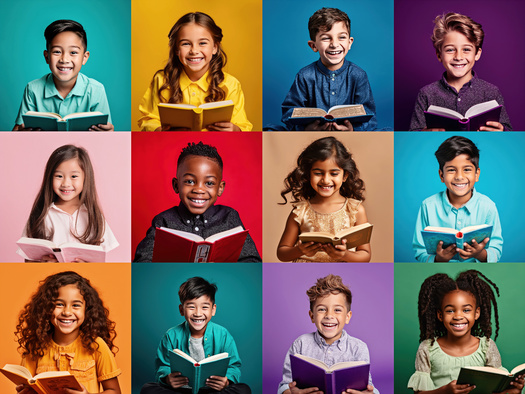
The Indiana Literacy Organization says children who lack good reading skills in their early years are prone to leaving school without a diploma, which can lead to perpetuation of a cycle of poverty and illiteracy. (Adobe Stock)
Reading may not be a favorite activity for some kids, but a new program aims to change that - by sending books directly to their homes.
The Dolly Parton Imagination Library was created more than 20 years ago through the singer's nonprofit Dollywood Foundation.
The program provides age-appropriate books to kids up to age five, sent every month by mail at no charge. But it's been available in only a little more than half of Indiana's 92 counties.
State Librarian Jake Speer said their goal is to grow the program quickly so that all families statewide can sign up.
"It's funded by 50% of the cost by the state," said Speer, "and then 50% by a local affiliate in their community or county, or their region."
The state has allocated $12 million over the next two years as matching funds.
Speer said the Indiana State Library will coordinate the program and provide the state match to local partners who are interested in expanding the program to all counties.
The latest figures, released last month by the Indiana Department of Education, found nearly one in five third graders struggles to read at grade level.
Speer noted that sending books through the mail will mean easier access for parents with transportation challenges or busy schedules.
"Having books in the home is one indicator of having high literacy," said Speer, "So, it's a really great program because the kids get excited, the families get excited - the family's going to be able to read to their child."
Statewide, IDOE results show more than 65,000 third-graders - or almost 82% - were proficient in reading in the 2022-2023 Indiana Reading Evaluation and Determination, or "I-READ-3," assessment.
That's a slight improvement over the previous year. But the department says another 15,000 third-graders will need additional support to meet grade-level reading standards.
